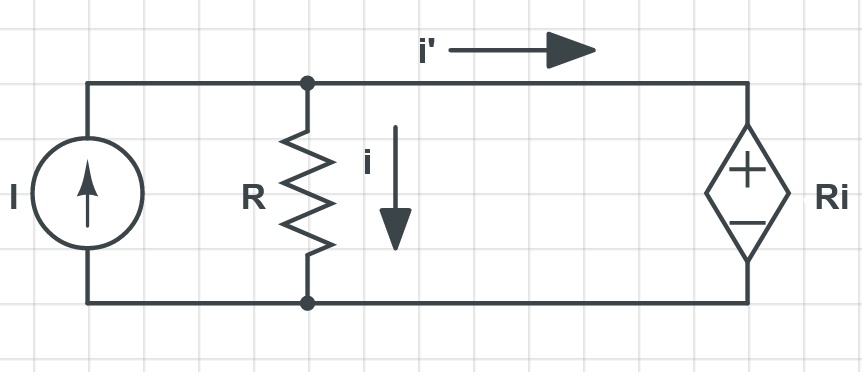Can we find the value of \$i'\$ in this circuit, considering \$I\$ and \$R\$ are known?
Using Kirchhoff’s Current Law we have that \$I = i + i'\$.
If the dependent source voltage was \$ki \;, \; k \neq R \$ then from Kirchhoff’s Voltage Law we would have \$(k-R)i=0\$, and since \$ k \neq R \$ we have that \$i=0\$, so \$i'=I\$.
What happens when \$ k=R \$, as in the picture above? Kirchhoff's laws are theoretically satisfied for every value of \$i\$. Should we assume that \$i\$ is zero again? Or better, does \$i'\$ and by extension \$i\$ have a fixed value?
Thank you in advance

